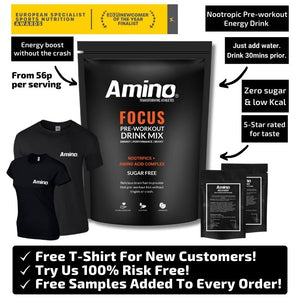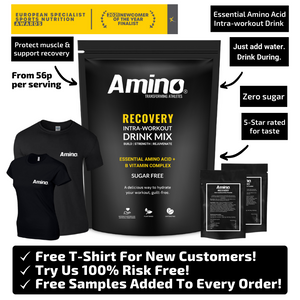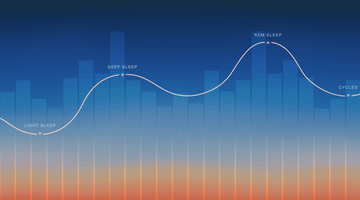|
Why is nutrition important for building muscle? Muscle doesn't magically appear. It takes time to grow and it can be frustratingly difficult to achieve the results you want. Hours in the gym only go so far. Your nutrition needs to be a major part of your workout plan. Here are our 5 essential nutrition tips to help you build muscle.
|
Building lean muscle is important to all sorts of athletes, not just bodybuilders.
As with all things relating to the body and its performance, there is a collection of principles that can help you achieve results you’re looking for. In fact, to make the most of the hours you spend slogging away at the gym, you need to get your nutrition right.
Here are our 5 essential nutrition tips for achieving peak muscle gains:
#1 Eat Excess Calories
You need to increase the total number of calories you eat on a daily basis in order to build muscle.
We cannot stress this enough.
Consuming additional calories is the most important factor in developing muscle mass. The body cannot grow without an excess of calories to feed it.
If you're struggling to build muscle, the chances are, you’re probably not getting enough food to create a positive calorie balance.
That being said, there are a few other elements to consider.
Firstly, timing. Muscle building is not a fast process in comparison to fat loss. Bodybuilders spend 75% of the year building and 25% cutting.
Secondly, it’s important to find the optimal amount of additional calories. Muscles can only build at a certain speed. Calorie provision that increases faster than muscle growth could result in unwanted body fat. Finding the right balance is key – get enough but not too much.
A good rule of thumb is no more than 500 calories more than you burn each day. However, our top tip here is to use a science-based calorie calculator that factors in your body and training information.
This informative article by Joe Agu will help you understand the concept of excess calories in more depth: Nutrition principles for muscle growth
#2 Boost Your Protein Intake!
Although it plays a smaller role than calorie consumption, it’s important to make sure that a large percentage of your calories comes from protein sources.
Proteins are your building blocks. If you don’t have enough, you won’t be able to build your protein stores (muscle). Makes sense, right?
There are lots of theories and methodologies for achieving optimal protein intake. This will come down to your own research and methodology. As a rough guide, 25-40% of what you consume each day should be a source of protein.
#3 Time Your Carbs to Maximise Gains
The better your workouts, the more muscle you’ll build.
Before training, opt for veg and starchy carbs that offer a slow release of energy. Post-training, it is important to consume higher glycemic-index carbohydrates, such as wholegrain bread and rice.
#4 Avoid Excess Fat
If you’re eating more calories to build muscle, but your diet contains too many carbohydrates and fats, you’ll put on body fat.
To maintain lean mass, you need to eat a calorie surplus made up of protein and whole grains. This helps you to avoid fat. Aim for a maximum of 20% of your calorie intake coming from good fats. Completely cut out saturated fats, which derive from meat and full-fat dairy.
#5 Recover Smarter
Make sure you give tired muscles what they need to repair and rebuild. It’s important to note that overtraining can cause break down (catabolism), which prevents muscle growth.
The best way to protect your muscles is to consume a high-quality source of essential amino acids during or very soon after finishing a workout.
Depending on what you like this can be protein-based or an amino acid supplement/drink like Amino. Amino Recovery contains the key muscle-building amino acid leucine, which is the key amino for stimulating muscle tissue growth and repair.
Related: Our secret recovery hacks
Key Takeaways?
Using the tips mentioned above, make a note of your current set up and nutritional intake. What do you currently do? What may be missing from your diet?
The key to success is the use of scientific principles. There are loads of calculators and information available online. If you’re really keen to take it to the next level, find a nutrition coach who can provide expert guidance.






